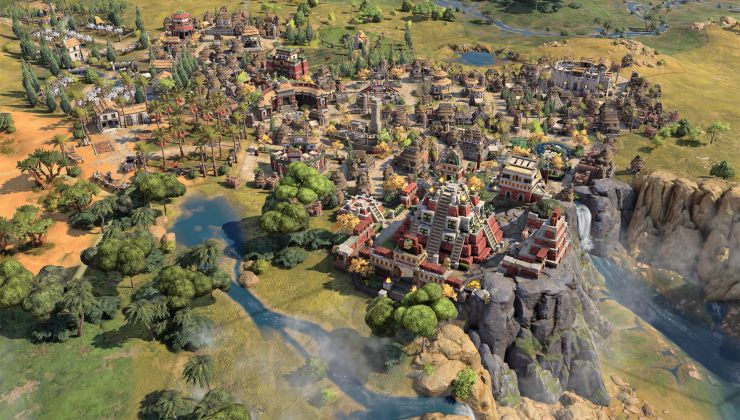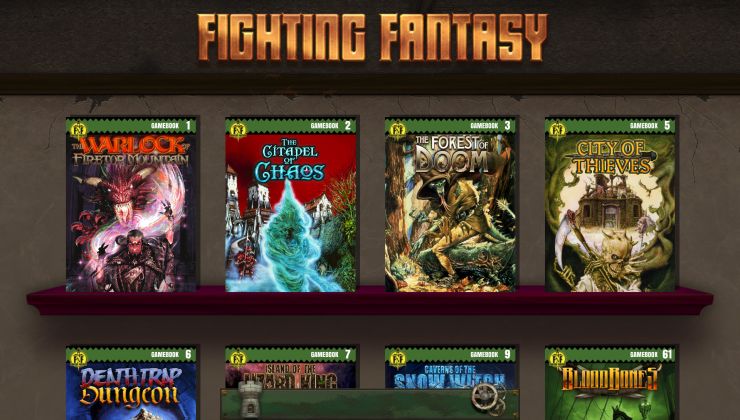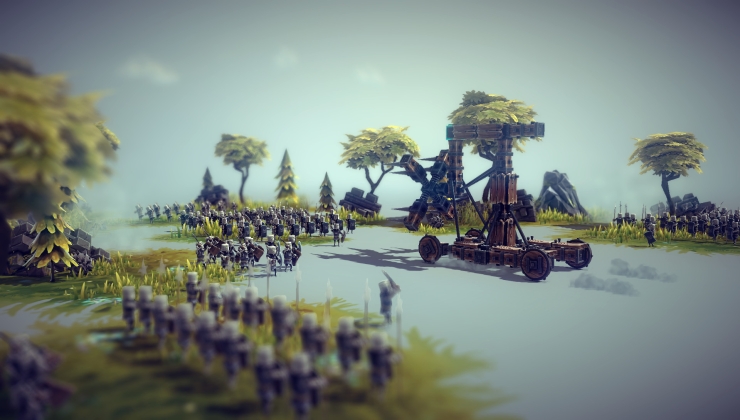The first Steam Play Proton release of 2020 is now available with 4.11-12 which is mainly a cleanup.
Looking to get started with Steam Play on Linux? Be sure to check our previous beginners guide for some tips and explanations. We'll be keeping that up to date with any major changes.
DXVK, the translation layer the converts Direct 3D 9/10/11 to Vulkan which forms part of Proton was upgraded to the 1.5.1 release from last week. So all the changes there like performance improvements for D3D9 and bug fixes for some big titles like GTA V are available now.
Also included is a fix for Xbox controller buttons in Elex, better mouse behaviour in IL-2 Sturmovik, support for newer OpenVR SDKs making Audioshield and Dance Collider playable plus a steamworks SDK update.
While it might be small, it's a nice focused release to keep Proton running smoothly. I expect the next major Proton update to be after Wine 5.0 is released which should be later this month. Wine 5.0 is currently going through Release Candidates to have final polishing. Proton is currently quite a number of versions behind on Wine now, so it's probably going to see a good boost in compatibility once Proton pulls it in.
As always, see the Proton changelog here.
There has been a lot of news and discussion over the weekend on the topic of Steam on Linux and officially supported and recommended distributions.Half a year later and with Windows 7 reaching EOL, any recent communication from Valve on expanding the list of officially supported Linux distros for Steam?
Given the information we have on this new approach so far, it seems likely that we will be able to continue to officially support Steam on Ubuntu.
The Linux landscape has changed dramatically since we released the initial version of Steam for Linux, and as such, we are re-thinking how we want to approach distribution support going forward. There are several distributions on the market today that offer a great gaming desktop experience such as Arch Linux, Manjaro, Pop!_OS, Fedora, and many others. We'll be working closer with many more distribution maintainers in the future.
That all being said, we don't have anything specific to announce at this time regarding what distribution(s) will be supported in the future; expect more news on that front in the coming months.
[https://medium.com/@mdiluz/linux-gaming-at-the-dawn-of-the-2020s-a941dd602f61](https://medium.com/@mdiluz/linux-gaming-at-the-dawn-of-the-2020s-a941dd602f61)
Last edited by sub on 15 Jan 2020 at 8:28 am UTC
Half a year later and with Windows 7 reaching EOL, any recent communication from Valve on expanding the list of officially supported Linux distros for Steam?
I think the container thing is a real answer actually saying they are not supporting any specific distro's, but actually saying they want to support as much as possible.
Containers work 2 ways: they shield the host from the container: whatever happens on the container will not really have impact on the host, but they also shield the container from the host: whatever installation change on the host should not be noticeable in the container...
But it still is just a container and not a VM.
I think the container thing is a real answer actually saying they are not supporting any specific distro's, but actually saying they want to support as much as possible.Like you, I assumed Plagman was alluding to containerization in the first sentence of the second to last paragraph of the post I quoted. What I'm not confident assuming is that it means any given general purpose / desktop Linux distribution would be officially supported. I am quite interested in where this goes, and I am hoping for more details soon. It would be wonderful from a user perspective if Valve expanded their official support footprint to all actively maintained desktop Linux distributions, but that may be a bridge too far.
There are a lot of interesting (e.g. NixOS), shiny (e.g. elementary OS), and venerable (e.g. Slackware) distributions out there, and I intend absolutely no disrespect to any other distributions, but if I had to limit official support to a short list, I wish official support coverage included Arch Linux, Debian,[1] Fedora, Gentoo, openSUSE, and Ubuntu (the latter of which already receives official support). I don't care if SteamOS is carried forwards by Valve or not.
Nothing is guaranteed, but I feel those six distributions would be fairly safe bets, and Valve wouldn't be tethered to a single third-party distribution. Six might be more than Valve would prefer.
---
1. The fact that SteamOS is based on Debian doesn't automatically confer official support status on Debian itself, and in so far as I can hazard a conclusion from dated [documentation](https://support.steampowered.com/kb_article.php?ref=1504-QHXN-8366), Debian isn't officially supported at this time.
Anyone experience frequent crashes like me?
DXVK, the translation layer the converts Direct 3D 9/10/11 to Vulkan which forms part of Proton was upgraded to the 1.5.1 release from last week. So all the changes there like performance improvements for D3D9 ...
Is D9VK still considered experimental in DXVK/SteamPlay? Do we still need to use the
PROTON_USE_D9VK=1 %command% launch option?EDIT: Yes, we do
This newest update has caused a frequent "Ran out of video memory" error and game crash whilst playing B'lands 2 and I've had to roll back to proton 4.2-9 and lose the juicy VK graphics because of it.
EDIT: I figured out the fix, and it was from [here on GoL.](https://www.gamingonlinux.com/forum/topic/3822/post_id=22832) First I moved back to Proton 4.11.12, then I added the launch option
PROTON_FORCE_LARGE_ADDRESS_AWARE=1 and all is speedy and well again! :)Last edited by Nanobang on 18 Jan 2020 at 3:05 pm UTC









 How to set, change and reset your SteamOS / Steam Deck desktop sudo password
How to set, change and reset your SteamOS / Steam Deck desktop sudo password How to set up Decky Loader on Steam Deck / SteamOS for easy plugins
How to set up Decky Loader on Steam Deck / SteamOS for easy plugins
See more from me